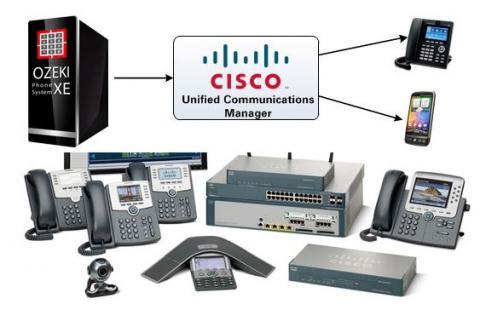Table of Contents

When businesses grow, communication becomes more important than ever. Phone calls, video meetings, and messages are all part of daily work, and managing them in one place can make things simple. That’s where Cisco Call Manager, also known as Cisco Unified Communications Manager (CUCM), comes in. It is a powerful tool that helps companies handle their phone systems, video calls, voicemail, and more.
Why Cisco Call Manager?

The main reason is control and reliability. With CUCM installed in your office (on-premise), you are not fully depending on cloud services or internet providers. The system runs inside your own network, which means you decide how it works, how secure it is, and how much you want tzzo expand it.
Another advantage is integration. Cisco Call Manager connects smoothly with Cisco IP phones, video conferencing systems, and even third-party tools. This makes it a long-term solution for businesses that don’t want to keep changing systems every few years.
Preparing for Installation
Installing Cisco Call Manager is not like installing a simple app on your laptop. It needs some planning. Here are the key things to check before starting:
- Hardware or Virtual Machine
CUCM can run on Cisco’s own server hardware or on virtual machines (VMware). Most companies today prefer the virtual option, as it allows easier scaling and backup. - Network Readiness
A strong and stable network is essential. Since this system will handle voice calls, video calls, and messaging, the network must be designed to reduce delays and ensure clear quality. - Licensing
Cisco Call Manager requires licenses for users, devices, and features. It’s always better to plan the number of phones and services you need in advance, so there are no surprises later. - Backups
Even before the installation, set up a plan for regular backups. This will save a lot of trouble if something goes wrong in the future.
Steps in Cisco Call Manager Installation
These are the general steps of CISCO Call Manager installation.
- Boot the Installation Media
Start with the installation DVD or ISO file. The server boots into the Cisco Unified Communications setup. - Choose Installation Type
You can install as a publisher server (the main server in the cluster) or as a subscriber server (secondary server for load balancing and redundancy). Normally, businesses start with a publisher. - Set Up the Basics
The installer will ask for time zone, keyboard layout, and network details such as IP address, subnet mask, and gateway. This is important because once the system is live, phones will use these settings to connect. - Database and Security Settings
CUCM creates a database to store user and device information. During setup, security certificates are also configured to ensure communication is safe. - First Login and Web Interface
After installation, you can log in to the Cisco Unified CM Administration web interface. This is where most of the configuration work happens, like adding phones, users, and call routing rules. - Test the Setup
Before rolling it out company-wide, test with a few IP phones. Check call quality, voicemail, and basic features. Once everything works fine, more devices can be added gradually.
Benefits of On-Premise Installation
Many people now talk about cloud phone systems, but on-premise installation still has big advantages.
- Full Control – The business owns the system and decides when to update or expand.
- Better Security – Data and calls stay within your own network, which is safer for sensitive industries.
- Reliability – Even if internet goes down, internal calls within the company will still work.
- Long-Term Savings – Cloud systems may look cheap monthly, but costs add up. With on-premise, you make a one-time investment and then enjoy long-term stability.
Final Thoughts
Cisco Call Manager installation may look technical at first, but with the right planning it is very straightforward. The system gives businesses a strong and reliable communication backbone. Unlike cloud solutions that depend on outside services, an on-premise setup puts the business fully in charge.
As an authorised Cisco Partner in Dubai, FSI Information Technology plays an important role in delivering reliable Cisco Call Manager (CUCM) solutions. From initial consultation and installation to ongoing IT AMC support, FSI ensures businesses get the right setup tailored to their needs. Their expertise helps companies in Dubai achieve a secure, scalable, and efficient communication system backed by trusted Cisco support in Dubai.
For businesses in Dubai, IT AMC support in Dubai plays a key role during and after Cisco Call Manager (CUCM) installation. From setting up the system correctly to providing regular updates, backups, and troubleshooting, AMC ensures that the entire communication platform works without interruptions. Having a reliable AMC partner means your CUCM setup is always maintained by experts, giving your team peace of mind to focus on daily business operations.
